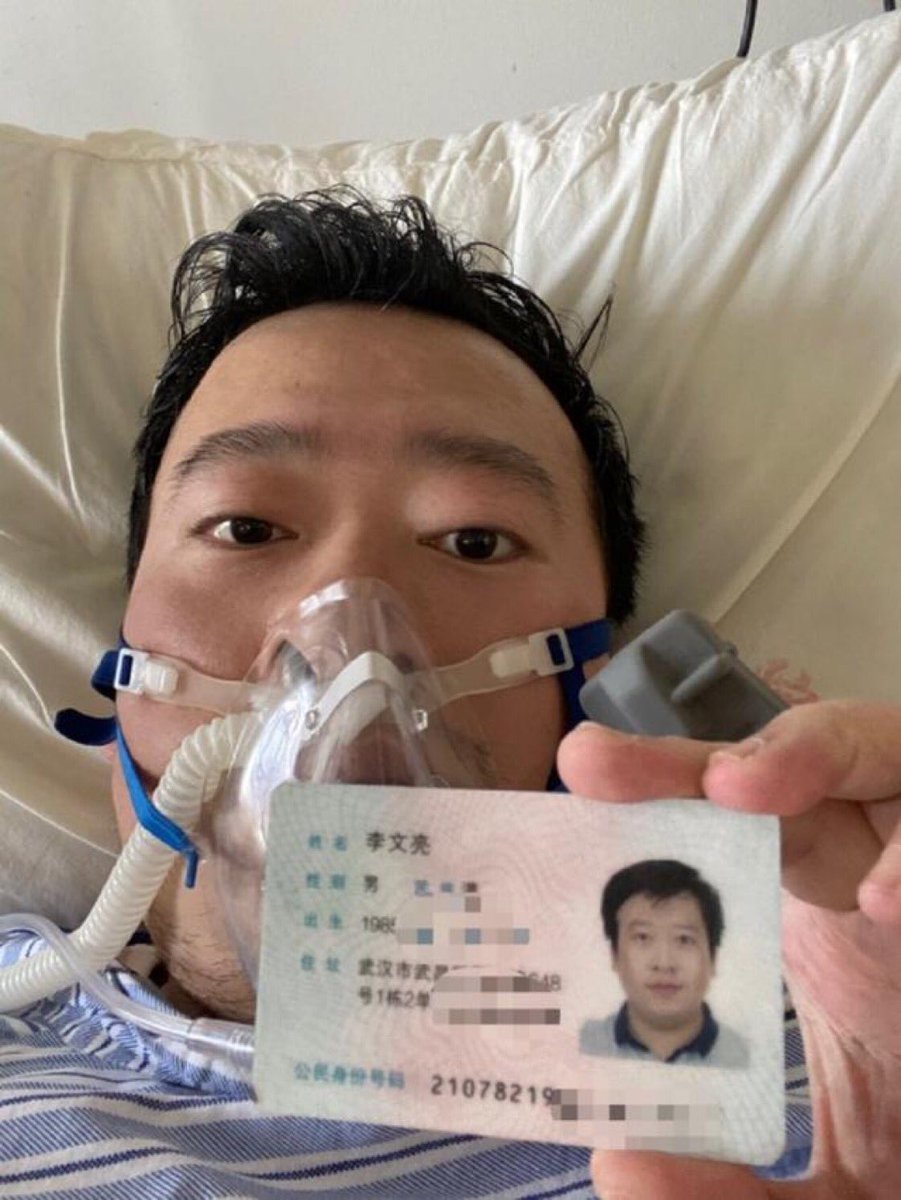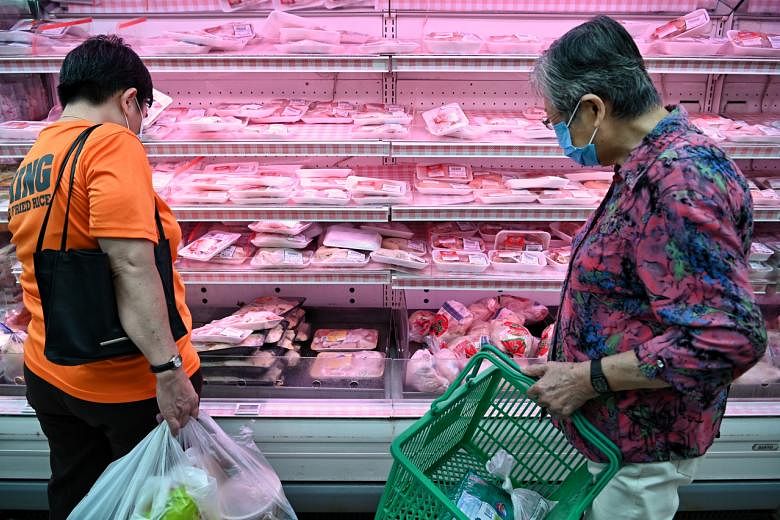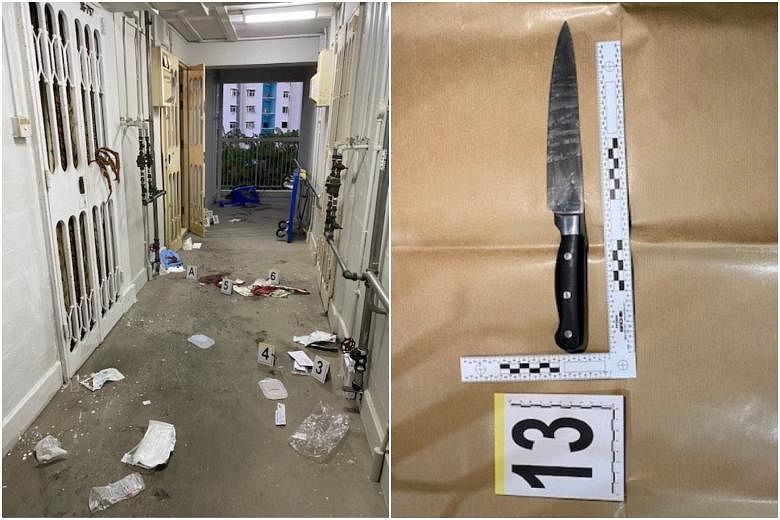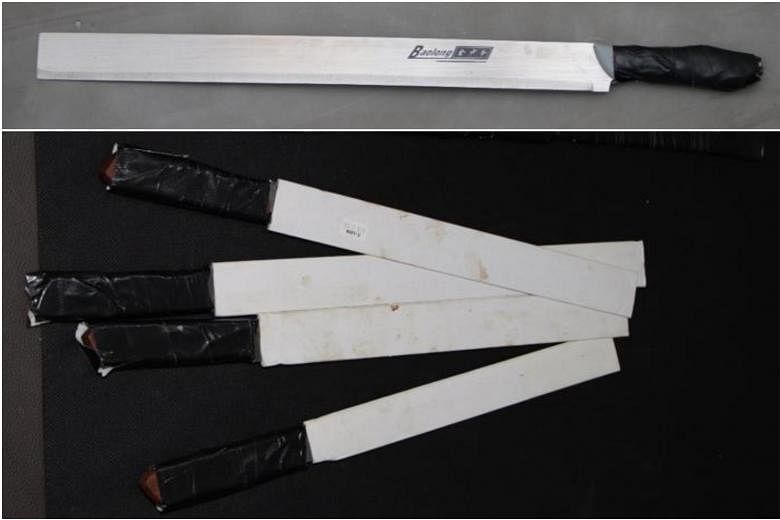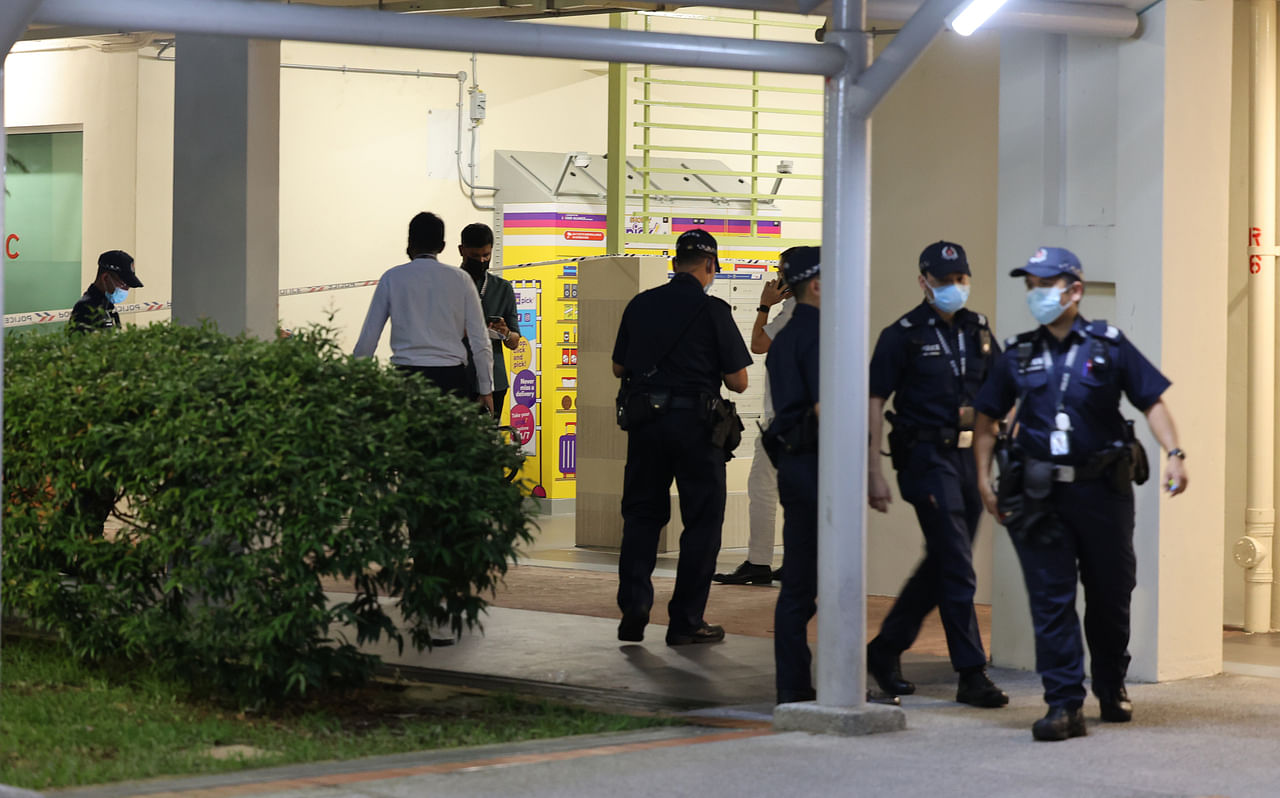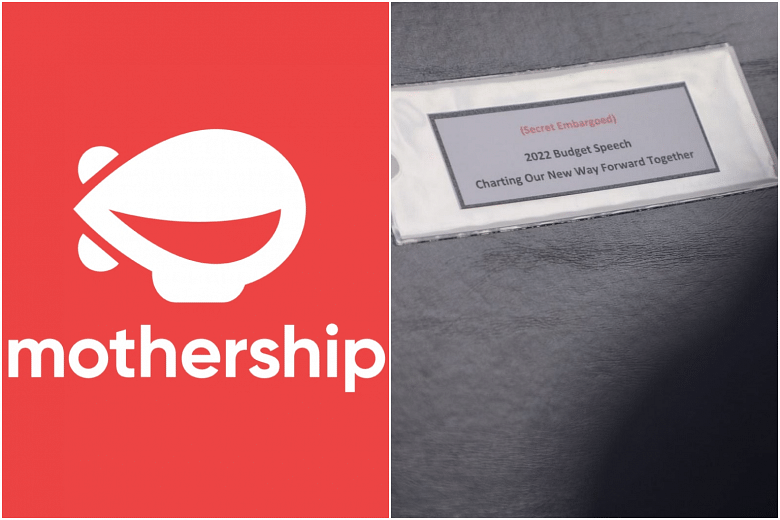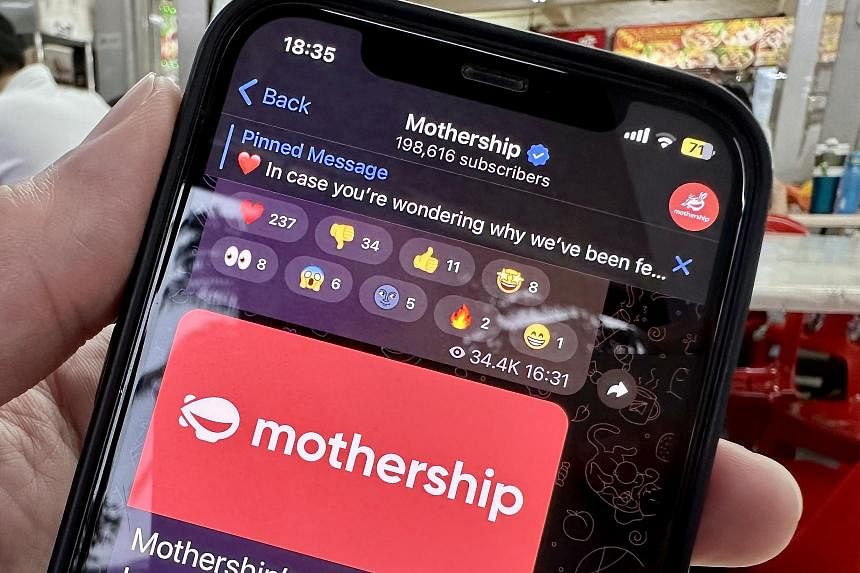All FairPrice stores to check scales daily after videos show grocery weight discrepancies
Since the incident occurred at Nex, FairPrice said it has engaged certified technicians to recertify all the scales in the store. ST PHOTO: KUA CHEE SIONG
Anjali Raguraman
Consumer Correspondent
FEB 13, 2022
SINGAPORE - The emergence of two videos on TikTok showing groceries whose weights were inaccurately labelled at NTUC FairPrice outlets has prompted questions online about whether consumers should verify the weight printed on labels at supermarkets before making a purchase.
Both videos emerged in the past week.
The first video, posted on Feb 5 by user Nina Monzolevska, showed that a packet of chicken bought from the FairPrice Xtra outlet at Nex weighed 0.165kg, although it was labelled 0.224kg.
FairPrice apologised in a Facebook post on Feb 6, saying that it had contacted the customer and was investigating "the cause of the alleged mislabelling".
A second video, taken at a FairPrice outlet in Ang Mo Kio on Feb 7, showed a packet of salmon labelled with a weight of 0.296kg. However, TikTok user Ben1841 found that it weighed only 0.176kg on his scale.
In response to queries from The Straits Times about the first incident, a FairPrice spokesman said: "The mislabelling incident likely arose due to human error, based on our initial findings, since we were unable to retrieve the product in question to conduct a more comprehensive investigation."
The supermarket chain has since offered the customer a refund for her purchase.
"We agree this should not have occurred and have reviewed and taken steps to tighten our processes around our labelling procedures to better serve our customers," added the spokesman.
Since the incident occurred at Nex, FairPrice said it has engaged certified technicians to recertify all the scales in the store.
It has also instituted additional protocols, where all stores will need to conduct daily checks on the scales before the start of business.
"Fresh products that have already been labelled will also have the weight rechecked to ensure label accuracy," said the spokesman.
FairPrice said that fresh products like chicken are pre-packed by suppliers in trays, covered in cling wrap and labelled to indicate the date of packing. When FairPrice stores receive them, they are then weighed, taking into consideration the weight of the packaging, and affixed with a price label.
In response to queries from ST, a spokesman for the Weights and Measures Office said it has inspected the weighing instruments at Fairprice's Nex branch and have verified them to be accurate.
"We are currently in touch with NTUC to determine the actual cause of the mislabelling," added the spokesman.
FairPrice said its scales across its FairPrice, FairPrice Finest and FairPrice Xtra outlets are calibrated by authorised vendors yearly and undergo preventive maintenance twice a year.
Similarly, outlets under the DFI Retail Group calibrate their scales once a year.
The group, which runs Cold Storage and Giant supermarkets, said that as part of its standard operating procedures, team members, who are trained regularly, carry out verification checks daily on its weighing scales to avoid errors.
"The weighing and labelling processes are manual, where either our supplier partner, with whom the majority of the fresh meat process is being handled by, or team member, sticks the label on products after weighing the products," said a DFI spokesman.
"While there may be room for human error, both our supplier partners and team members are regularly reminded to double-check before displaying the products for sale."
Sheng Siong did not respond to queries from ST.
The Weights and Measures Office, which is overseen by Enterprise Singapore, said it conducts about 2,400 surveillance checks each year on businesses, including supermarket chains.
Last year, it detected five cases that infringed the Weights and Measures Act due to short weight - or weight that is less than declared - after which fines and warnings were issued to the businesses.
Under the Act, the accuracy of all regulated weighing and measuring instruments used for trade in Singapore must be verified annually by independent, authorised verifiers.
Businesses are also required to supply quantities of goods to consumers that accurately reflect the weight declaration on the product label.
The Weights and Measures Office said action will be taken against businesses that fail to meet the requirements under the Act, including selling short-weight goods.
Depending on the severity of the offence, culprits may face a fine of up to $5,000, and/or imprisonment of up to three months.
"The Weights and Measures Office takes a serious view of non-compliance with weights and measures regulations and will investigate reports filed by the public on infringements," said the spokesman.
Both NTUC and the DFI Retail Group encouraged customers to approach their staff immediately if they find any labelling discrepancy on their products.
They said they will also honour a full refund or exchange for products that have been inaccurately labelled.
After learning about the videos, consumers whom ST spoke to said they are more concerned about discrepancies in the weight of groceries, but a few grams' difference is still acceptable.
Ms Marianne Tan, 33, a producer, buys fresh meat every week and bulk-buys frozen meat like beef and pork every few weeks, depending on how much cooking she has to do that week. She shops at FairPrice and Cold Storage.
While she will be more wary about mislabelled weights, she said: "If the discrepancy is not huge, it's okay."
She added: "You can roughly eyeball the piece of meat and see if it looks like the weight stated. I'd probably let it slide... I don't think the staff do it on purpose as they might have just forgotten to put the scale back to zero after weighing the previous item, since they have so much to do."
In a check of five meat items at a FairPrice outlet in Bishan, ST found that the weight on the label deviated only slightly from the reading on the scale. For instance, a strip of pork loin with a labelled weight of 0.276kg weighed 0.286kg on the scale.
Tips for consumers buying goods by weight
The Weights and Measures Office said consumers buying goods sold by weight can adopt the following tips to ensure that they get what they paid for.
• Use the verified in-store weighing scales to get an estimated weight of the
packaged product.
• Look out for the Weights and Measures Office’s "Accuracy" label affixed on in-store scales to check that they have been verified within the past year. The red-and-white label has a QR code label bearing a unique, seven-digit identification number. Consumers can scan the code for more information about the instrument, such as the validity of its accuracy label and date of last verification.
• Alert the seller when the weight or price displayed on the label is not clear or inaccurate.
• Ask the seller to show you the readings on the weighing scale.
• Check that the display indicates zero before the goods are weighed.
• Check that you are charged for the net weight of the goods, that is, avoid weighing the products together with other items, such as ice or heavy containers.
• Check goods with torn or tampered packaging, as the net quantity may be less than that stated on the label.
Consumers who suspect that they were short-changed should approach the businesses for compensation, said the Weights and Measures Office.
If they cannot resolve the matter, they can approach the Consumers Association of Singapore for help.
If there are concerns about the supply of short-weight goods, or the inaccuracy of weighing and measuring instruments used by businesses, consumers may contact the Weights and Measures Office by phone on 6898-1800 or e-mail
[email protected]

